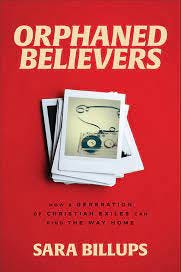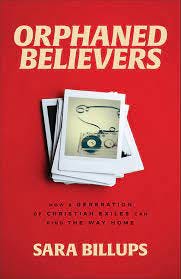Anticipatory Deconstruction
An alternative to the Christian Worldview approach for Christian Universities
Back in December, I shared some thoughts arising from my book project reconceptualizing Christian Higher Education1. In that piece, I argued that the pedagogical approach of promoting a Christian Worldview had significant limitations in both the short term and the long term. One of my principle critiques dealt with how little the Christian Worldview approach meshed with students’ daily concerns:
[B]ecause the Christian Worldview is not integrated into the student’s self-understanding, it’s hard to see what happens after they graduate and leave the supportive surrounds of the Christian University. Once outside (based upon interactions I’ve had with former students) they are no longer thinking in these terms.
In part, this is a recognition that Christian University students come from a variety of faith traditions, including no faith at all. As Chris Gehrz observed in his SubStack yesterday, that is a current reality we must deal with.
While I’ve been trying to think through the alternatives to the Worldview approach over the last month, I discovered a persistent theme running across my Twitter Feed.2 I’ve seen a clear increase in the number of pieces addressing the question of Deconstruction. Two weeks ago it was a thread from Ian Harber discussing the healthy components of deconstruction (read his SubStack here).3 D.L. Mayfield has a similar argument in her SubStack. As she explains:
I truly believe there was a generational shift in conservative, white religious communities that happened in the 70s, 80s, and 90s, leading to an unprecedented amount of cultural artifacts and media that were all aimed at indoctrinating children and teenagers. The white evangelical indoctrination station, we can call it. And I’ve spent the past few years/decades of my life trying to interrogate these artifacts. Do you remember any of them?
Here are just a few examples:
Adventures in Odyssey, the Strong-Willed Child, Jesus Freak, Brio Magazine, Frank Peretti, Focus on the Family magazine, Christianity Today, I Kissed Dating Goodbye, the Prayer of Jabez, Chicken Soup for the Soul, Touched by an Angel, the Left Behind Series, Acquire the Fire, Passion, Billy Graham, Hell Houses, Youth Group, Dare to Discipline, Wayne Grudem’s Systematic Theology, Harvest Parties, John Piper, McGee and Me, Veggie Tales, Conversion Therapy, Y2k prophecies, Francis Chan, Mission trips, Bible studies, Bible colleges, Campus Crusade for Christ, Intervarsity, WOW CDs, Promise Keeper’s, Francine Rivers, Max Lucado Bibles, Missions week, purity rings, Elizabeth Elliot, World Vision, and more.
A new book just released yesterday (thanks to the Englewood Review of Books for the heads up). Written by Sara Billups, Orphaned Believers tells her story as well as offering valuable insight. (My copy arrives tomorrow.)
Of course, there are other books from more seasoned writers. Two I’d highlight are David Gushee’s After Evangelicalism and Philip Yancey’s Where the Light Fell. Both of these authors are unquestionably deep in their faith and still had to undergo significant deconstruction.
What happens when the constructed systems of the Christian Worldview don’t hold? For too many Christians in their 30s and 40s, they feel adrift. Those that are from highly structured environments will struggle with reconciling new ideas. Those with little faith commitments may not feel they are Christians at all. Many others fall between the two responses.
Sociologically, this is what Peter Berger described as “plausibility structures”. These systems of ideas exist not only external to the individual (through socialization) but must also hold together subjectively. It’s what James Davison Hunter refers to in his work on evangelicals as “cognitive bargaining”.
It is a challenge to work through these various epistemological threats. First, the college student leaves home and church of origin (if it exists) and comes to college. There are well-documented shifts that occur throughout the college years.4 Then comes the move beyond the cloistered Christian campus out into "the real world".
What if, rather than seeing questioning of the Christian Worldview as an institutional challenge that must be controlled, we see it as an inevitable part of the student’s growth? If that were the case, the struggles faced by those in their 30s or 40s or later might be addressed sooner but within the context of a supportive community?
If we instead saw Deconstruction as a natural part of subjective faith development, we could prepare students for the questions that will arise.5 Not because we fed them predetermined answers, but because we provided them with the requisite intellectual and spiritual tools.6
In another chapter of the book, I conducted a content analysis of over 30 Christian University mission statements. Very few of them define themselves as protecting a Christian Worldview, at least explicitly7. The vast majority of them define themselves as sending forth Christian leaders to impact the World. It seems to me that preparing students for that uncertain future in a post-Christian world is the most important task a Christian University can undertake.
I’m certainly not alone in this quest.
of Bethel University (MN) has a great SubStack that regularly explores these issues. While I would never hold Chris responsible for my perspective, he has been an excellent thought partner.Like everyone else, I have no idea what’s driving the algorithms in 2023 even if I stay with “Following” and avoid “For You”.
Ian will have a book out on the topic next year from IVP.
A quick illustration I discussed with students over the years: assuming that chapel doesn’t have required seating, it’s common to see senior students move farther back in the auditorium and become less engaged than the eager freshmen.
It reminds me of the role of inoculation theory as a hedge against persuasive appeals within the social psychology of attitude change.
The next section of the chapter will attempt to articulate what might be in that imagined toolkit.
As we have learned, sponsoring denomination, powerful trustees, and noisy alums may think otherwise!





Thanks for the generous comments, John. More importantly, thanks for this piece, which has me eager to read your description of the intellectual/spiritual tool box. What you're talking about certainly sounds more like what I value about education on our campuses than the "worldview" language.
Thanks for this and AMEN! There is a stigma/challenge in and around "decon" it seems like because young folk aren't told/trained to know it's OK to wrestle and ask questions. So instead of it being another "growth in the walk" avenue or a time to further engage Messiah, it becomes a full-on crisis of faith. Apparently, Yeshua may have had "doubters" as followers😉. Can't wait to see what that toolkit might look like. If I may make a humble suggestion for consideration - https://www.martysolomon.com/books - Marty's (Impact Campus Ministries/Bema Podcast) new book on wrestling and learning to ask better questions of the text in community.
Thanks again and keep up the great work! Shalom